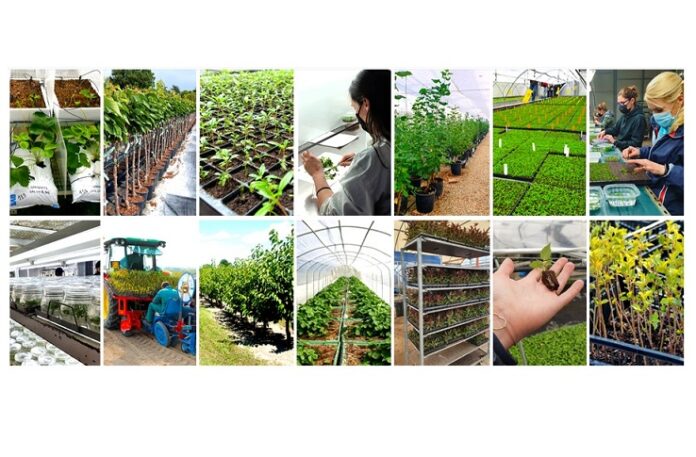La pirateria varietale rappresenta da anni un fenomeno dilagante della frutticoltura italiana. Nonostante la quasi totalità delle nuove varietà siano oggi protette da brevetti nazionali e privative comunitarie, la moltiplicazione e la coltivazione abusiva delle novità varietali ha assunto dimensioni a dir poco imbarazzanti, con un danno stimato, solo per l’Italia, di oltre 20 milioni di euro all’anno: una minaccia per l’intera filiera ortofrutticola nazionale, un danno inestimabile per il mondo produttivo, con i conseguenti rischi ì legati alla diffusione incontrollata di varie patologie, oltre a costituire un danno morale materiale per i costitutori, i produttori e di commercianti che operano nella legalità. Il tema sarà uno dei temi che verranno approfonditi a Macfrut (3-5 maggio Rimini Expo Centre) nel corso della “Tavola calda” in programma giovedì 4 maggio alle ore 13.00 nell’incontro “Promuovere le varietà in frutticoltura, tra attese messianiche e pirateria: un approccio realistico”, nell’ambito del Salone del Vivaismo.
“Lo sviluppo di una nuova varietà vegetale – precisa il Dr. Stefano Lugli, coordinatore del Salone del vivaismo – richiede tempi lunghi e ingenti risorse finanziarie. Per i fruttiferi, in media, servono da 10 a 15 anni per immettere sul mercato una nuova varietà, partendo dall’incrocio. Per un progetto di breeding l’investimento può tranquillamente superare i 100mila euro. A questi vanno aggiunti i costi di protezione, quelli di certificazione genetico sanitaria e le risorse per lo sviluppo commerciale della varietà. Conti alla mano, creare e diffondere una novità può richiedere 200mila euro e oltre. Nell’attuale ordinamento, il riconoscimento del diritto del costitutore attraverso il pagamento di royalty a pianta, a superficie o sul prodotto commercializzato, è condizione essenziale per garantire il proseguimento dei progetti di miglioramento genetico, siano essi soggetti pubblici o privati, offrendo la possibilità a frutticoltori di disporre di nuove varietà, più produttive, resistenti, resilienti e qualitativamente migliorate”.
Secondo il Prof. Daniele Bassi, moderatore della tavola rotonda “il tema dei diritti di moltiplicazione del materiale vegetale, compresi i fruttiferi, non è certo nuovo. Oltre a una normativa italiana, esiste quella europea, tra le più moderne al mondo e che prende in considerazione la protezione legale delle mutazioni e l’uso del materiale genetico ai fini del miglioramento varietale. Nonostante l’importanza della difesa dei diritti di moltiplicazione, l’infrangimento della legislazione è frequente, con danni per tutto il comparto. La ‘’tavola calda’’ di Macfrut, attraverso la voce di rappresentanti di tutta la filiera, vuole fare il punto sulla situazione”. (aise)
Varietal piracy has been a rampant phenomenon in Italian fruit growing for years. Although almost all new varieties are now protected by national patents and Community rights, the multiplication and illegal cultivation of varietal novelties have assumed embarrassing dimensions to say the least, with estimated damage, only for Italy, of over 20 million euros per year: a threat to the entire national fruit and vegetable supply chain, inestimable damage to the production world, with the consequent risks linked to the uncontrolled spread of various diseases, as well as constituting material non-material damage to breeders, producers, and traders operating legally. The theme will be one of the themes that will be explored at Macfrut (3-5 May Rimini Expo Centre) during the “Hot Table” scheduled for Thursday, May 4 at 13.00 in the meeting “Promoting varieties in fruit growing, between messianic expectations and piracy: a realistic approach”, as part of the Nursery Exhibition. The development of a new plant variety – specifies Dr. Stefano Lugli, coordinator of the Nursery Exhibition – requires long times and considerable financial resources. For fruit trees, on average, it takes 10 to 15 years to place a new variety on the market, starting from the cross. For a breeding project, the investment can easily exceed 100 thousand euros. To these must be added the costs of protection, those of genetic health certification and resources for the commercial development of the variety. Accounts in hand, creating and disseminating a novelty can require 200 thousand euros and more. In the current legal system, the recognition of the breeder’s right through the payment of royalties per plant, surface or marketed product, is an essential condition to ensure the continuation of genetic improvement projects, whether they are public or private subjects, offering the possibility to fruit growers to have new varieties, more productive, resistant, resilient and qualitatively improved”. According to Prof. Daniele Bassi, moderator of the round table “the issue of multiplication rights of plant material, including fruit trees, is certainly not new. In addition to Italian legislation, there is the European one, among the most modern in the world and which takes into account the legal protection of mutations and the use of genetic material for the purpose of varietal improvement. Despite the importance of defending reproductive rights, the violation of legislation is frequent, with damage to the entire sector. The Macfrut ”diner”, through the voice of representatives of the entire supply chain, wants to take stock of the situation”.
(AISE)





